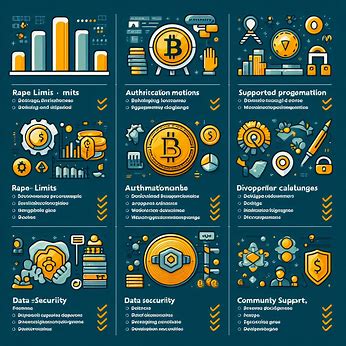Nigeria has been at the forefront of cryptocurrency adoption in Africa, but recent regulatory actions have significantly impacted the crypto landscape in the country. Here’s a comprehensive overview of the latest developments regarding the crypto ban in Nigeria.
Regulatory Updates to Combat Criminality
The Nigerian Securities and Exchange Commission (SEC) has updated its guidelines for crypto service providers as part of a broader effort to curb criminal activities associated with cryptocurrencies. These updates follow the government’s steps to block local access to several crypto platforms. The SEC’s new guidance aims to prevent criminals from registering as operators in the capital market, with a particular focus on implementing Anti-Money Laundering (AML), Countering Financing of Terrorism (CFT), and Combating Proliferation Financing (CPF) measures.
Ban on Person-to-Person Crypto Trading
In a significant move, Nigeria has announced its intention to ban person-to-person (P2P) cryptocurrency trading in the naira. This decision is part of a series of new rules expected to be rolled out, targeting crypto exchanges, digital asset custodians, and other sectors within the crypto industry. The ban on P2P trading is seen as a measure to prevent the manipulation of the naira, which has been a concern for the Nigerian government.
The Impact of Previous Bans and Restrictions
Previously, Nigeria had lifted a nearly three-year-old ban on transacting in cryptocurrencies, although the Central Bank of Nigeria (CBN) still emphasized the need to regulate virtual asset service providers (VASPs). However, earlier this year, the country began banning crypto platforms such as Binance, which was cited as a significant channel for currency speculation that contributed to the devaluation of the naira. The Nigerian Central Bank Governor, Olayemi Cardoso, highlighted the issue of “illicit flows” through these platforms, with Binance being a notable example.
The Role of Crypto Exchanges and the Naira’s Devaluation
Crypto exchanges have been accused of contributing to the devaluation of the naira, leading to calls for urgent action against these platforms. The Nigerian Communications Commission (NCC) ordered telecom companies to restrict consumer access to the websites of major crypto exchanges. Despite these measures, peer-to-peer (P2P) platforms remain popular in Nigeria, with the country ranking first in global P2P exchange trade volume.
Binance’s Response to Regulatory Scrutiny
In response to the regulatory scrutiny, Binance reassured its users that its app remained operational despite disruptions to its online platform. The exchange also expressed its commitment to engaging with regulators to address concerns and promote transparent dialogue regarding cryptocurrency operations in Nigeria.
Crypto Regulation and Usage in Nigeria
Nigeria has one of the highest rates of crypto usage in the world. The government had previously lifted its ban on crypto in December 2023, but cryptocurrencies are still not recognized as legal tender by the CBN. The SEC published a comprehensive document outlining new rules on the issuance, offering platforms, and custody of digital assets. A specific bill was also signed into law to clarify the tax status of digital assets in the evolving crypto space. Despite regulatory challenges, the volume of crypto transactions in Nigeria grew to $56.7 billion between July 2022 and June 2023.
The latest crypto ban in Nigeria reflects the government’s ongoing concerns about the impact of cryptocurrency on the national currency and the potential for criminal misuse. While the SEC is taking steps to ensure a regulated environment for crypto operations, the outright ban on P2P trading and the blocking of crypto platforms indicate a stringent approach to crypto regulation in the country. As the situation evolves, it will be crucial to monitor how these regulations affect Nigeria’s position as a leading crypto market in Africa.
FAQs
1.What are the main reasons behind the Nigerian government’s decision to impose a ban on person-to-person (P2P) cryptocurrency trading?
The Nigerian government has decided to ban P2P cryptocurrency trading in the naira as a measure to prevent the manipulation of the national currency. The government is concerned about the potential impact of cryptocurrencies on the value of the naira and aims to curb currency speculation through this ban.
2.How have previous bans and restrictions affected the cryptocurrency landscape in Nigeria?
Nigeria had previously lifted a nearly three-year-old ban on transacting in cryptocurrencies, but the Central Bank of Nigeria (CBN) still emphasizes the need to regulate virtual asset service providers (VASPs). Earlier this year, the country began banning crypto platforms such as Binance, which was cited as a significant channel for currency speculation that contributed to the devaluation of the naira.
3.What role have crypto exchanges played in the devaluation of the naira, and what actions have been taken against them?
Crypto exchanges have been accused of contributing to the devaluation of the naira, leading to calls for urgent action against these platforms. The Nigerian Communications Commission (NCC) ordered telecom companies to restrict consumer access to the websites of major crypto exchanges. Despite these measures, peer-to-peer (P2P) platforms remain popular in Nigeria, with the country ranking first in global P2P exchange trade volume.
4.How has Binance responded to the regulatory scrutiny in Nigeria?
In response to the regulatory scrutiny, Binance reassured its users that its app remained operational despite disruptions to its online platform. The exchange also expressed its commitment to engaging with regulators to address concerns and promote transparent dialogue regarding cryptocurrency operations in Nigeria.
5.What is the current state of crypto regulation and usage in Nigeria?
Nigeria has one of the highest rates of crypto usage in the world. The government had previously lifted its ban on crypto in December 2023, but cryptocurrencies are still not recognized as legal tender by the CBN. The SEC published a comprehensive document outlining new rules on the issuance, offering platforms, and custody of digital assets. A specific bill was also signed into law to clarify the tax status of digital assets in the evolving crypto space. Despite regulatory challenges, the volume of crypto transactions in Nigeria grew to $56.7 billion between July 2022 and June 2023.
6.What are the potential implications of the latest crypto ban on Nigeria’s position as a leading crypto market in Africa?
The latest crypto ban in Nigeria reflects the government’s ongoing concerns about the impact of cryptocurrency on the national currency and the potential for criminal misuse. While the SEC is taking steps to ensure a regulated environment for crypto operations, the outright ban on P2P trading and the blocking of crypto platforms indicate a stringent approach to crypto regulation in the country. As the situation evolves, it will be crucial to monitor how these regulations affect Nigeria’s position as a leading crypto market in Africa.







